03 Jun 2021
How your blood can help understand COVID-19 vaccine responses
A new biobank will collect, process and store samples from people having their COVID-19 vaccine in order to help researchers better understand immunity to the virus.
Written by Dr Miranda Smith, Dr Janine Trevillyan and Professor Sharon Lewin.
This article was first published on Pursuit. Read the original article.
Australia is in the midst of its biggest vaccination campaign ever for COVID-19. And this rollout is complex.
There are different COVID-19 vaccines and a spectrum of priority groups, and varying willingness to be vaccinated. Logistical and communication challenges have hampered a speedy campaign, and there’s evolving evidence of vaccine side effects.
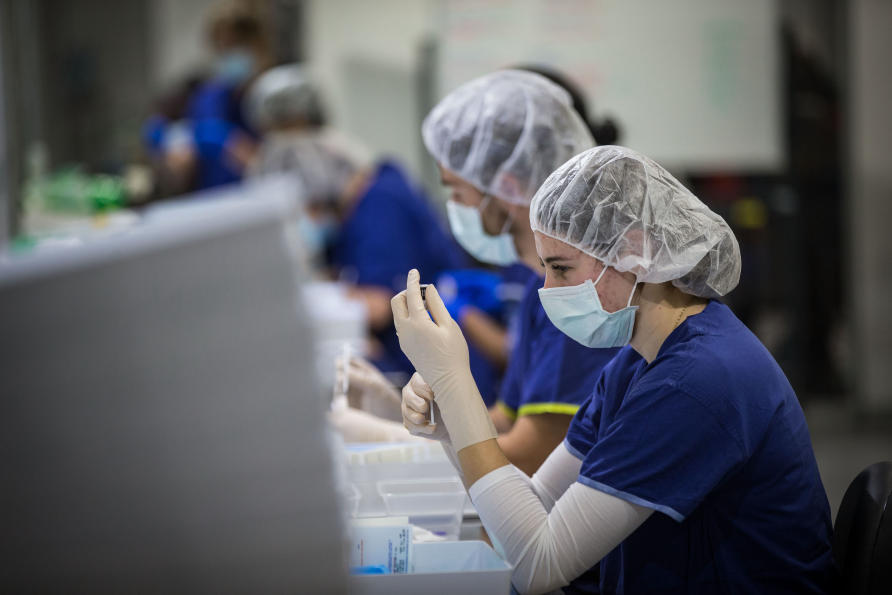
Through all of this, there are many outstanding questions about vaccine impact.
How long will vaccine-induced immunity last? Will the vaccines continue to be effective as new COVID-19 variants emerge? What happens to people who have already had COVID-19 disease? Are the vaccines as effective in older people as in younger groups?
What about people taking medication to suppress their immune response, for example people with cancer or those with autoimmune conditions? Does it matter that we have very low levels of COVID-19 disease in Victoria?
To help answer some of these questions, the Victorian government have funded the establishment of the Victorian COVID-19 Vaccinees Collection (VC²).
The VC² will be a biobank of samples accessible to all Victorian researchers. Through a co-ordinated strategy involving the Austin Health, Monash Health, and Western Health vaccination hubs, plus the Royal Melbourne Hospital, Peter MacCallum Cancer Centre, Royal Children’s Hospital, Alfred Hospital and Emeritus Research, the VC² will approach diverse Victorians to donate samples both before and for up to two years after they are vaccinated.
How will blood samples help researchers understand COVID-19 vaccine responses?
Blood is a valuable and relatively easy to access sample that can give us important insights.
Blood contains a huge variety of different cell types, including the red blood cells that give blood its colour, and a suite of white blood cells.
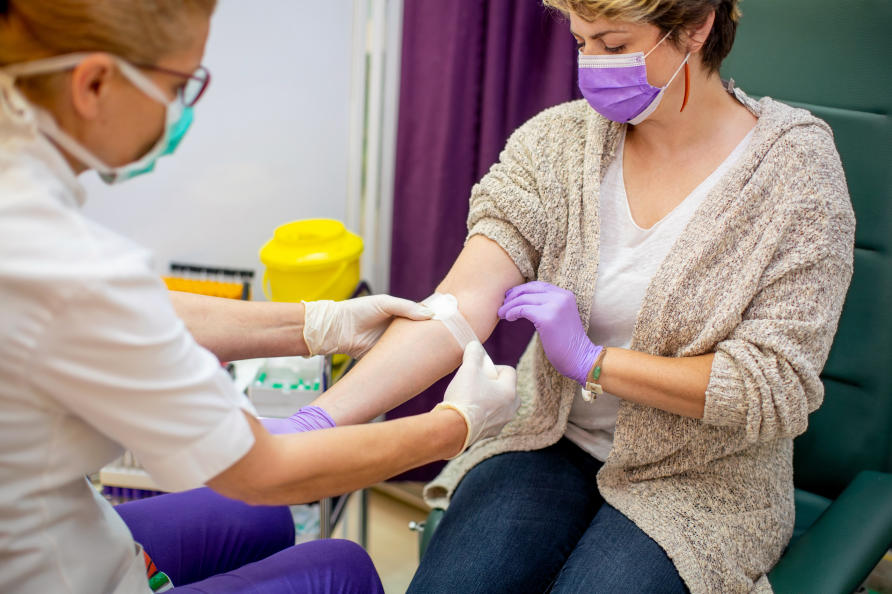
It also contains the components of the clotting pathway, including platelets, and a significant liquid portion. The liquid portion is commonly known as plasma (when clotting factors are removed), or serum (when the clotting factors remain).
When blood is collected for research, it’s processed into different components. Through spinning or centrifugation, the red blood cells can be removed, and the white blood cells and liquid components separated.
White blood cells include antibody-producing B cells and T cells that either support other immune cells or directly attack infected cells. These white blood cells are a central part of the immune system and can provide us with important insights when we study these cells in detail.
For example, detailed early studies of white blood cells from a person with COVID-19 helped to identify the type and timing of immune response before recovery. This was important in understanding COVID-19 disease and how it can be managed (or prevented, with vaccines).
The COVID-19 vaccines being rolled out in Victoria and elsewhere in the world are designed to trigger antibody responses. Those antibodies are found in serum and plasma – so these samples are vital for directly measuring the impact of vaccination.
What is a biobank and how will biobanking contribute to new research?
A biobank is an organised collection of biological samples for research use. It’s a collection that can enable important disease insights to be made more quickly and easily than an ad-hoc approach to specimen collection.
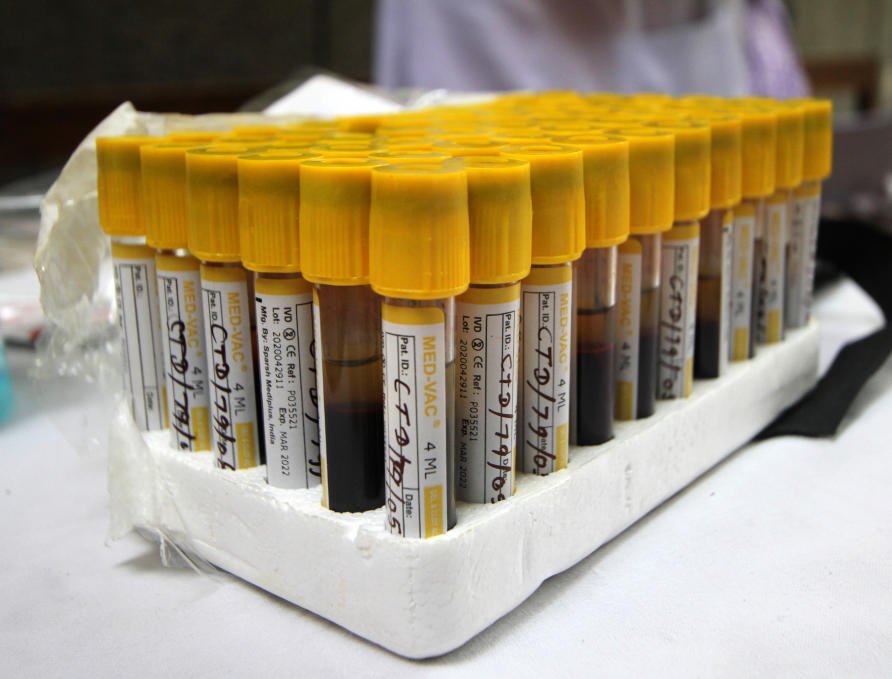
Importantly, biobanks include quality control measures that ensure the samples can be trusted by researchers.
Many biobanks are in operation in Australia already. The Victorian Cancer Biobank, for example has contributed to better understanding of treatment response in colorectal cancer and has supported the development of a potential blood screening test for colorectal cancer amongst a host of other important contributions.
To understand vaccine responses in detail, researchers will need access to carefully prepared cell and plasma/serum samples from a variety of people before and after vaccination.
An initiative like VC² is important to support this research.
By paying for the collection, processing and storage of high-quality samples, these can be made available to all Victorian researchers through an inclusive, simple and rapid access process. This will enable a variety of great research ideas to be explored – not only those from researchers at large research centres.
Is this work being done elsewhere, and why do it in Victoria?
Similar biobanks are being established or are already established around the world. So, why establish the VC² in Victoria?
Firstly, Victoria is home to some of the world’s best virologists and immunologists.
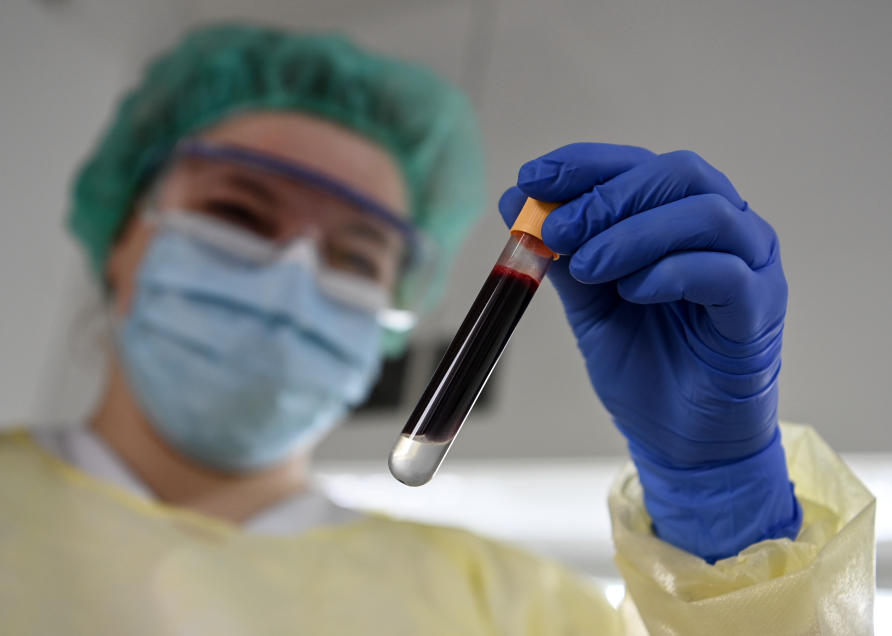
Many have unique expertise in areas of research that can be used to provide an understanding of vaccine responses. By forming the biobank, far larger sample sets with relevant clinical information can be provided to the researchers and, ideally, accelerating their research.
Secondly, Australia is unique because we have one of the lowest rates of COVID-19 in the world. This will have implications for pre-existing immunity and vaccine responses.
Finally, at the moment, we have minimal understanding of how these vaccines work in groups of people with impaired immune systems. It’s critically important we understand the response to COVID-19 vaccines in all conditions, as this has never been formally studied.
If needed, we can also join forces with similar biobanks nationally or internationally to greatly increase the power of these investigations.
Reflecting community opinion
A Community Advisory Board will be established for the VC². This will ensure that the research questions being asked are a priority for the community, not just for the researchers.
It will also provide a pathway for the community to bring new ideas to researchers. The Community Advisory Board will support the entire project and contribute to reviewing applications for the use of VC² samples.
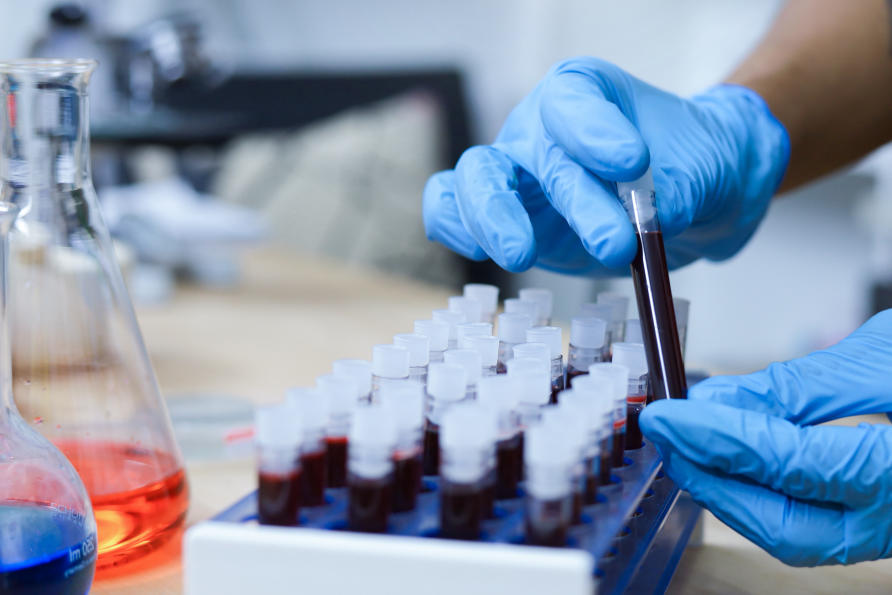
It’s important that this project is a collaborative one between donors, the wider community and researchers. By involving the community in the planning and running of the biobank, it will build a foundation of trust and ensure that any further research is useful and relevant.
Through the VC², we hope to develop a model for research support that begins with COVID-19 vaccines but can go on to contribute to enduring systems that also help us prepare for the next infectious disease challenge.
Find more information on the Victorian COVID-19 Vaccinees Collection (VC²) on the Doherty Institute website.
Banner: Getty Images


